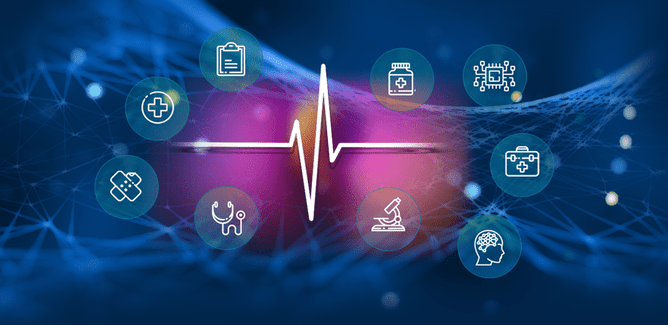Pioneering Pathways: Exploring the Next Frontier of Allied Health with Exercise Physiology
In the dynamic world of healthcare, where innovation intertwines with compassion, Exercise Physiology stands as a beacon of transformative potential. As we journey into the future, we're met with a captivating tapestry of emerging trends that promise to redefine the landscape of allied health. Join us as we embark on a voyage of exploration, uncovering the profound implications of these trends for holistic well-being.
Telehealth Triumphs: Redefining Access, Amplifying Impact
The rise of telehealth has heralded a new era of accessibility, transcending geographical boundaries to deliver Exercise Physiology services directly into the homes and hearts of patients. In a world where distance no longer dictates access, Exercise Physiologists are leveraging digital platforms to conduct virtual consultations, offer remote monitoring, and provide personalized exercise interventions tailored to each individual's unique needs and goals. Through the lens of telehealth, Exercise Physiology emerges as a beacon of empowerment, empowering patients to embark on transformative journeys of physical well-being, irrespective of their location or circumstance.
Personalized Precision: Crafting Wellness with Careful Craftsmanship
In an age where one size no longer fits all, the dawn of personalized medicine beckons, inviting Exercise Physiologists to embark on a journey of tailored interventions and individualized care plans. By harnessing the power of genetics, genomics, and data analytics, Exercise Physiologists are crafting bespoke exercise regimens that resonate with each patient's distinct genetic makeup, lifestyle choices, and health aspirations. From personalized training programs that optimize performance to exercise prescriptions that mitigate chronic conditions, the realm of personalized Exercise Physiology emerges as a testament to the transformative potential of precision health.
The AI Advantage: Where Innovation Meets Insight
Artificial Intelligence (AI) and machine learning are wielding transformative power in the realm of Exercise Physiology, offering practitioners an arsenal of tools for data analysis, predictive modeling, and clinical decision-making. From AI-driven exercise monitoring systems to machine learning algorithms that forecast performance trajectories, the integration of AI is ushering in a new era of efficiency and efficacy in Exercise Physiology practice. By harnessing the power of AI, Exercise Physiologists can unlock deeper insights, optimize training protocols, and elevate the quality of care delivered to patients, propelling them towards their fitness goals with precision and purpose.
Collaborative Care: Fostering Unity, Multiplying Impact
In recognition of the interconnected nature of health and wellness, Exercise Physiologists are embracing the ethos of interdisciplinary collaboration and team-based care. By forging partnerships with physicians, physical therapists, nutritionists, and other allied health professionals, Exercise Physiologists can provide holistic and coordinated care that addresses the diverse needs of patients. This collaborative approach not only enhances patient outcomes but also fosters a culture of shared learning and innovation, propelling the field of Exercise Physiology towards new horizons of excellence.
Preventive Paradigm: Nurturing Health, Cultivating Wellness
As the healthcare landscape pivots towards a preventive paradigm, Exercise Physiologists are assuming pivotal roles in promoting wellness, preventing disease, and optimizing population health. Through community-based interventions, health screenings, and advocacy for healthy lifestyle behaviors, Exercise Physiologists are empowering individuals and communities to take proactive steps towards optimal well-being. By addressing the root causes of health disparities and advocating for health equity, Exercise Physiologists are catalyzing a transformative shift towards a future where wellness is not merely a destination but a journey embarked upon with intention and empowerment.
In conclusion, the horizon of Exercise Physiology is aglow with promise and potential, illuminated by the twin beacons of innovation and compassion. By embracing emerging trends and championing holistic approaches to care, Exercise Physiologists are poised to chart a course towards a future where health is not merely the absence of illness but the presence of vitality, resilience, and flourishing in all its myriad forms. Join us on this exhilarating journey as we unlock the boundless possibilities that lie ahead in the realm of Exercise Physiology.
